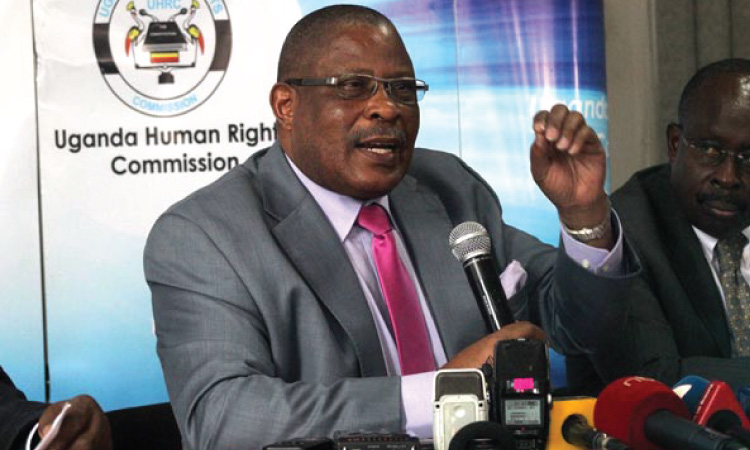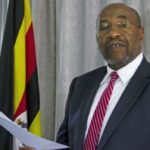Government has set up different commissions in the country, which use billions of shillings of the taxpayers’ money but have nothing significant to show for those annual expenditures. Ugandans are asking the relevance of those commissions and we look at them as;
Uganda Human Rights Commission
The Uganda Human Rights Commission (UHRC) recently presented a Ministerial Policy Statement to parliament presented by the Acting Secretary to the Commission Ms. Margaret Lucy Ejang which gave brief highlights of the budget performance for the current financial year to date and projected budget allocations to UHRC for the period from financial year 2019/2020 to 2022/2023.
In the ministerial statement, the critical emerging policy issues at the Commission Ms. Ejang made a case for included unfunded priorities by the UHRC totaling to over Shs35 billion which government had not availed to UHRC to fund core activities including staff salary enhancement; approval of expanded staff structure; civic education programmes; procurement of motor vehicles for mobility; investigation and resolution of complaints and opening countrywide offices that are intended to take services closer to the people.
But UHRC has failed to step up its monitoring function of detention centers especially those at Police stations to ensure that suspects are not detained for long periods before being produced in courts of law. UHRC only barks but does not bite. For instance the recent abuse of rights of journalists and opposition leaders in the country have happened without UHRC saying a word. The Commission is absent in many parts of the country and few Ugandans know it exists.
The Education Service Commission
The Educations Service Commission is supposed to ensure government recruits qualified teachers into public schools but this is not the case. Most schools in the country have teachers who are not qualified to do the job. They have forged academic papers obtained from the streets of Kampala. The Education Service Commission seems to have left the recruitment of teachers to districts and that is why we have pupils and students in upcountry districts performing worst year in year out.
Equal Opportunities Commission
The Equal Opportunities Commission (EOC) which was formed recently has nothing big to show for the money it receives. The civil service continues to be dominated by particular groups even when one considers recent recruitments in government offices. University admissions and loan schemes are dominated still by those groups.
Health Service Commission
The mission of the Health Service Commission is to build a fundamentally strong and competent human resource base for efficient and effective health service delivery. That mission is poised to fail because many hospitals and health centres don’t have enough medical personnel, with most of the public health facilities depending on student nurses and doctors to do the work at no pay in case of student nurses. Its vision is to establish a fully resourced health workforce that is responsive, efficient and effective in Uganda socio-economic transformation process but this has challenges as those recruited are involved in corruption-stealing government drugs and mistreatment of patients. Some health facilities use unqualified personnel to deal with patients.
Public Service Commission
The Public Service Commission is established under the provisions of Article 165(1) of the 1995 Constitution. In fulfillment of its functions under Article 166, the Commission is required to make a report to Parliament in respect of each year’s performance of its functions.
However, the history of the Public Service Commission of Uganda dates as far back as 1947 when the Holmes Salaries Revision Commission was set to review the structures and remuneration of the civil servants in East Africa. The 1953/1954 Lidbury Salaries Review Commission report recommended the establishment of the Public Service Commission. On September 1, 1955, the Public Service Commission of Uganda was established.
This commission has not performed as expected due to corruption in the recruitment of government staff especially at district levels where we have district service commissions recruiting relatives, asking for bribes from job seekers. The public service commission also is to blame for the current situation where districts have many unadvertised jobs.
One wonders whether its vision of an institution at the helm of a competent, motivated and highly performing Public Service will be achieved and whether its mission of providing government with Competent Human Resources for effective and efficient Public Service delivery can be realised given the poor service delivery by public officials.
Judicial Service Commission
The Judicial Service Commission (JSC) is composed of members with powers to facilitate improving the efficiency and effectiveness of Justice administration in Uganda. However, this is not being done as justice in Uganda is for the rich. Poor people hardly win cases in court because corrupt judicial officers including registrars, clerks and judges. The commission has no mechanism of following up cases in court and does not care when a poor people lose cases.
Uganda Land Commission
The Uganda Land Commission (ULC) was established by the 1995 Constitution of the Republic of Uganda with the objectives to; .ensure the effective and efficient management of all government land and property thereon, develop and maintain an updated inventory and database for all government land and property, ensure that all government land is titled and secured, ensure proper use and accountability of Land Fund and enable bonafide and lawful occupants acquire registrable interest. An analysis shows that ULC Commission has failed in all those objectives as identified by the Auditor General in his report as of June 30, 2018. The Auditor General in his report mentioned some agencies and districts that have not secured government land by way of getting land titles for the properties. So one wonders why ULC should continue receiving government funding.








